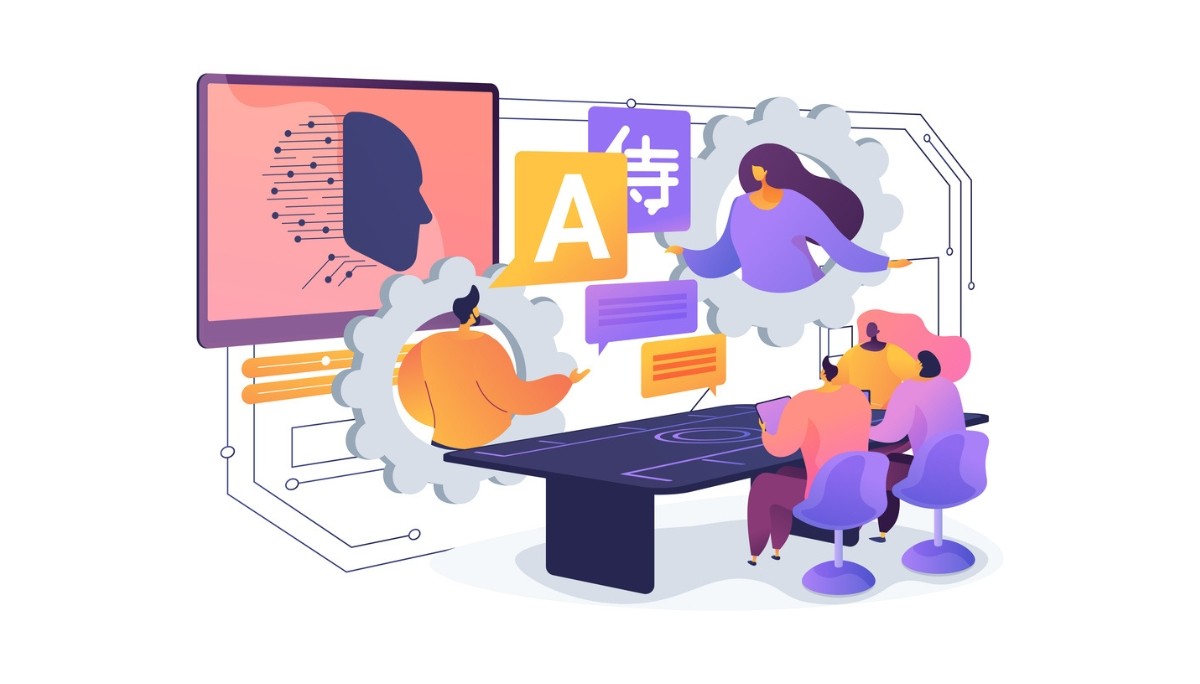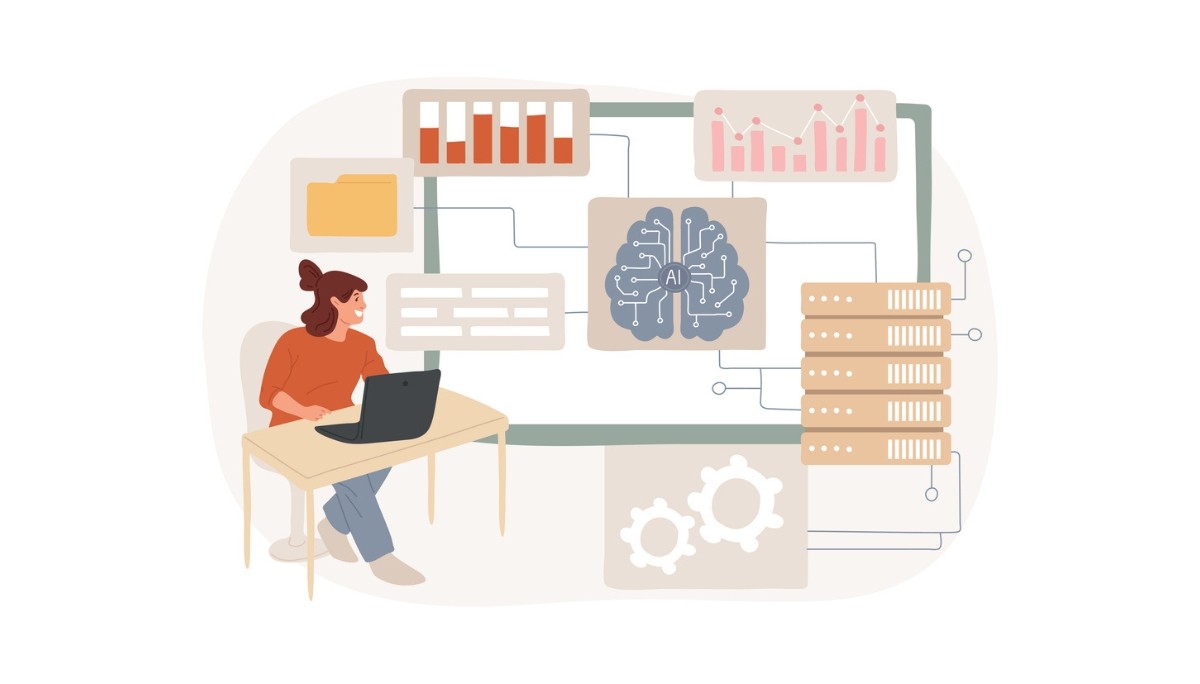What is the Highest Paying Job in AI?
By
Samantha Cox
•
Jun 18, 2025
Curious who’s making the biggest paycheck in AI right now? In 2025, AI Research Scientists top the charts, earning anywhere from $295K to $440K. But they’re not the only ones cashing in. This article dives into the highest-paying jobs in AI and what really drives those sky-high salaries.
Summary
AI Research Scientists are the highest paid in the AI sector, with salaries ranging from $295,000 to $440,000 due to their specialized skills and advanced education.
Key positions in AI, such as AI Product Managers and Machine Learning Engineers, also offer impressive salaries, averaging $182,587 and $164,048, respectively, showcasing the high demand for these roles.
Factors affecting AI salaries include experience level, geographic location, and industry demand, emphasizing the importance of continuous skill development and networking for career growth.
Highest Paying AI Jobs in 2025

The job market for artificial intelligence jobs is booming, with a projected increase of 14.1% in job growth due to advancements in AI by 2027. This growth is fueled by the increasing integration of AI technologies across various industries, creating high demand for skilled professionals and a positive job outlook.
Some of the highest-paying AI jobs in 2025 include AI Product Managers, Machine Learning Engineers, and NLP Engineers, each offering competitive salaries and exciting career prospects.
AI Product Manager - (Average Annual Salary: $182,587)
An AI Product Manager plays a crucial role in guiding the development and launch of AI products. Their responsibilities include:
Overseeing the product lifecycle
Researching trends
Managing product roadmaps
Effectively communicating the product vision.
With an average annual salary of $182,587, AI Product Managers are among the highest-paid professionals in the AI industry. Useful degrees for this role include:
Bachelor’s in business
Bachelor’s in data science
Bachelor’s in IT
Bachelor’s in computer science
Bachelor’s in marketing
Bachelor’s in project management
Alongside these degrees, relevant certifications are also important.
Machine Learning Engineer - (Average Annual Salary: $164,048)
Machine Learning Engineers are responsible for developing machine learning models and algorithms, as well as training and retraining applications. With an average annual salary of $164,048, these professionals are highly sought after, especially by top organizations offering salaries ranging from $170,000 to $200,000.
A typical educational background for this role includes:
A Bachelor’s degree in Computer Science or a related field.
Proficiency in programming languages like Java, Python, and Scala.
Experience with tools such as TensorFlow.
NLP Engineer - (Average Annual Salary: $157,240)
NLP Engineers enable computer systems to process and analyze human language through natural language processing, build language data programs, run experiments, and train models. With an average annual salary of $157,240, NLP Engineers are well-compensated for their specialized skills.
Typically, they hold a bachelor’s degree in computer science, data science, or software engineering, and require expertise in semantic extraction techniques, data structures, sentiment analysis, programming languages like Python, and skills relevant to software engineers, data analysts, and data scientists.
Factors Influencing AI Salaries

What you earn in AI isn’t just about your job title. Things like experience, where you live, industry demand, and even your education all play a role. Knowing how these factors affect pay can help you make smarter career moves and negotiate with confidence.
Let’s take a closer look at what really drives AI salaries.
Experience Level
Experience level significantly influences salary ranges for AI professionals. More experienced individuals tend to earn higher salaries, reflecting their advanced skills and knowledge.
For instance, entry-level AI roles may offer competitive pay, but those with several years of experience can command substantially higher compensation in entry-level jobs.
Location
Geographic location is another critical factor affecting AI job salaries. The cost of living and local job market competition can vary significantly by region, influencing salary expectations.
For example, AI professionals in tech hubs like San Francisco can expect higher salaries compared to those in smaller cities, due to the higher cost of living and greater demand for AI talent.
Industry Demand
The demand for AI talent is particularly high in the technology sector, leading to competitive salary offerings. Industries such as healthcare and finance are also increasingly adopting AI technologies, driving up the demand for skilled professionals and highlighting the importance of technological advancements.
This high demand contributes to the lucrative nature of AI roles, with many positions offering salaries above the national average.
Essential Skills for High-Paying AI Jobs

To secure high-paying AI jobs, professionals must possess a combination of technical and soft skills. Key skills include:
Understanding machine learning techniques
Proficiency in programming
Data analysis
Communication
Building a robust portfolio and engaging in continuous learning can also enhance job prospects and build job-ready skills.
Technical Skills
Essential technical skills for AI careers include:
Programming languages such as Python, Java, and C/C++
Machine learning frameworks
Data analysis
Applications in computer vision
Engaging in hackathons or open-source projects can help gain practical experience in software development and showcase these skills to potential employers.
Soft Skills
Soft skills are equally important for navigating the complexities of AI careers and collaborating effectively in cross-functional teams. Problem-solving skills, critical thinking, and communication skills enhance one’s ability to tackle challenges, innovate solutions, and convey ideas clearly.
Developing strong soft skills can significantly improve career prospects and progression in the AI field.
Certifications and Degrees
A bachelor’s degree in computer science is generally the minimum educational requirement for AI positions. For the highest-paying AI research jobs, a PhD is often required. Professional certifications, such as IBM’s AI Developer Professional Certificate or the USAII Certified Artificial Intelligence Scientist (CAIS), can significantly enhance job prospects.
A solid portfolio or prior programming skills can sometimes substitute for a Master’s Degree in AI roles.
How to Prepare for a Career in AI
Getting a job in AI can elevate your career and provide access to dynamic and rewarding roles. Preparing for a career in AI involves building job-ready skills, gaining practical experience, and networking with professionals in the field.
Let’s explore these steps in detail.
Building Job-Ready Skills
AI professionals can build new skills by taking courses, networking with peers, and attending workshops. The IBM AI Developer program offers valuable skills in AI technologies, generative AI models, programming, AI tools, and AI chatbot development.
Freelancing on platforms like Upwork provides flexible project-based opportunities to gain real-world AI experience. Engaging in coding competitions can further sharpen programming abilities relevant to AI.
Gaining Practical Experience
You do not necessarily need corporate work experience to break into the AI field, as practical experience can be gained through various other means. Internships provide hands-on experience, allowing you to apply theoretical knowledge in real-world situations.
Freelancing offers flexibility and the chance to work on diverse AI projects, enhancing skills and building a portfolio. Contributing to open-source projects allows aspiring AI professionals to collaborate with others and improve their problem-solving abilities.
Networking and Mentorship
Building a strong professional network is essential for career growth in the AI industry, as it can lead to job opportunities and collaborations.
Mentorship in the AI field allows professionals to receive invaluable advice, gain industry insights, and expand their knowledge from experienced individuals. Obtaining an MBA with Specialization in Advanced AI can also increase earning potential and develop managerial skills.
What is the Highest Paying Job in AI?

AI Research Scientists hold the title for the highest paying job in AI, with average salaries ranging from $295,000 to $440,000. Key aspects of this role include:
Expertise in mathematics, machine learning, and deep learning.
Typically holding a doctoral degree in computer science.
The combination of specialized skills and advanced education makes this role highly lucrative and in demand, especially for an AI researcher.
Table: Highest Paying AI Jobs
The position of a Machine Learning Engineer offers a salary of $164,048. This reflects the training and expertise required for the role. Other related positions and their salaries include:
AI Product Manager: $182,587
NLP Engineer: $157,240
AI Architect: $148,441
Big Data Engineer/Architect: $151,300
Computer Vision Engineer: $132,077
Data Scientist: $105,000
AI Software Engineer: $108,000
Business Intelligence Developer: $130,000
This list provides a comprehensive overview of the highest-paying AI jobs, including their average annual salaries.
Preparing for AI Job Interviews

To excel in AI job interviews, it’s crucial to thoroughly understand the job requirements and align your skills with the expectations. Practical tips for preparing for interviews include researching potential employers, practicing key interview skills, and showcasing your expertise effectively.
Researching Potential Employers
Researching potential employers can significantly increase your chances of landing a job. Before an AI job interview, it’s essential to research:
The company
The interviewer
The job description
Relevant questions
Investigating the interviewers’ backgrounds on platforms like LinkedIn can provide insights into their interests and expectations.
Reading employee reviews on platforms like Glassdoor can reveal insights into company practices and the environment.
Practicing Key Interview Skills
Nailing an AI job interview takes more than just technical know-how. It’s about showing how you think, so make sure you talk through your process when solving problems. That gives interviewers a window into your critical thinking.
Get familiar with the kinds of questions that come up in the field, especially the creative or curveball ones. And don’t forget the basics: watch your body language, keep an eye on the clock, and stay focused on what the interview is really about, figuring out if it’s the right fit on both sides.
Leveraging Platforms Like Fonzi for AI Careers
Fonzi is a curated talent marketplace designed specifically for job-seeking AI professionals, including engineers and researchers. Fonzi aims to educate and empower technical candidates to navigate the complexities of the modern hiring landscape.
Utilizing AI to create clarity in the hiring process, Fonzi helps candidates understand how hiring is evolving.
How Fonzi Works
Fonzi connects AI professionals with top-tier companies efficiently. One of the key features of Fonzi is Match Day, an event that connects employers with a select group of verified candidates actively seeking job opportunities. Fonzi’s Match Day is a high-signal, efficient way to get in front of top-tier companies.
This platform reinforces a positive, human-centered message that AI helps recruiters focus on people and does not replace them.
Benefits of Using Fonzi
Fonzi aims to minimize biases in hiring practices, promoting a more equitable selection process for all candidates. By focusing on candidates’ skills rather than personal characteristics, Fonzi reduces hiring bias and ensures fairer recruitment outcomes.
Offering a blend of AI-driven automation and human support, Fonzi allows recruiters to focus more on candidate engagement rather than logistics. Fonzi is designed to reduce bias, protect candidate experience, and speed up the hiring timeline.
Summary
AI is one of the most exciting fields to work in right now, especially if you have the skills to back it up. Whether you’re into building models, managing AI products, or working with natural language tools, there’s no shortage of opportunities. The catch? Salaries can vary a lot based on your experience, where you live, and how in-demand your skills are.
That’s why it pays to keep learning and growing. Platforms like Fonzi make it easier to find roles that match your strengths and cut through the noise of traditional hiring. If you’re building a career in AI, staying curious, connected, and open to new challenges is what really sets you up for long-term success.




